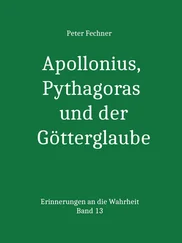Apollonius
The Argonautica
✓ VISIT OUR WEBSITE:
LyFreedom.com
(ll. 1-4) Beginning with thee, O Phoebus, I will recount the famous deeds of men of old, who, at the behest of King Pelias, down through the mouth of Pontus and between the Cyanean rocks, sped well-benched Argo in quest of the golden fleece.
(ll. 5-17) Such was the oracle that Pelias heard, that a hateful doom awaited him to be slain at the prompting of the man whom he should see coming forth from the people with but one sandal. And no long time after, in accordance with that true report, Jason crossed the stream of wintry Anaurus on foot, and saved one sandal from the mire, but the other he left in the depths held back by the flood. And straightway he came to Pelias to share the banquet which the king was offering to his father Poseidon and the rest of the gods, though he paid no honour to Pelasgian Hera. Quickly the king saw him and pondered, and devised for him the toil of a troublous voyage, in order that on the sea or among strangers he might lose his home-return.
(ll. 18-22) The ship, as former bards relate, Argus wrought by the guidance of Athena. But now I will tell the lineage and the names of the heroes, and of the long sea-paths and the deeds they wrought in their wanderings; may the Muses be the inspirers of my song!
(ll. 23-34) First then let us name Orpheus whom once Calliope bare, it is said, wedded to Thracian Oeagrus, near the Pimpleian height. Men say that he by the music of his songs charmed the stubborn rocks upon the mountains and the course of rivers. And the wild oak-trees to this day, tokens of that magic strain, that grow at Zone on the Thracian shore, stand in ordered ranks close together, the same which under the charm of his lyre he led down from Pieria. Such then was Orpheus whom Aeson's son welcomed to share his toils, in obedience to the behest of Cheiron, Orpheus ruler of Bistonian Pieria.
(ll. 35-39) Straightway came Asterion, whom Cometes begat by the waters of eddying Apidanus; he dwelt at Peiresiae near the Phylleian mount, where mighty Apidanus and bright Enipeus join their streams, coming together from afar.
(ll. 40-44) Next to them from Larisa came Polyphemus, son of Eilatus, who aforetime among the mighty Lapithae, when they were arming themselves against the Centaurs, fought in his younger days; now his limbs were grown heavy with age, but his martial spirit still remained, even as of old.
(ll. 45-48) Nor was Iphiclus long left behind in Phylace, the uncle of Aeson's son; for Aeson had wedded his sister Alcimede, daughter of Phylacus: his kinship with her bade him be numbered in the host.
(ll. 49-50) Nor did Admetus, the lord of Pherae rich in sheep, stay behind beneath the peak of the Chalcodonian mount.
(ll. 51-56) Nor at Alope stayed the sons of Hermes, rich in corn-land, well skilled in craftiness, Erytus and Echion, and with them on their departure their kinsman Aethalides went as the third; him near the streams of Amphrysus Eupolemeia bare, the daughter of Myrmidon, from Phthia; the two others were sprung from Antianeira, daughter of Menetes.
(ll. 57-64) From rich Gyrton came Coronus, son of Caeneus, brave, but not braver than his father. For bards relate that Caeneus though still living perished at the hands of the Centaurs, when apart from other chiefs he routed them; and they, rallying against him, could neither bend nor slay him; but unconquered and unflinching he passed beneath the earth, overwhelmed by the downrush of massy pines.
(ll. 65-68) There came too Titaresian Mopsus, whom above all men the son of Leto taught the augury of birds; and Eurydamas the son of Ctimenus; he dwelt at Dolopian Ctimene near the Xynian lake.
(ll. 69-70) Moreover Actor sent his son Menoetius from Opus that he might accompany the chiefs.
(ll. 71-76) Eurytion followed and strong Eribotes, one the son of Teleon, the other of Irus, Actor's son; the son of Teleon renowned Eribotes, and of Irus Eurytion. A third with them was Oileus, peerless in courage and well skilled to attack the flying foe, when they break their ranks.
(ll. 77-85) Now from Euboea came Canthus eager for the quest, whom Canethus son of Abas sent; but he was not destined to return to Cerinthus. For fate had ordained that he and Mopsus, skilled in the seer's art, should wander and perish in the furthest ends of Libya. For no ill is too remote for mortals to incur, seeing that they buried them in Libya, as far from the Colchians as is the space that is seen between the setting and the rising of the sun.
(ll. 86-89) To him Clytius and Iphitus joined themselves, the warders of Oechalia, sons of Eurytus the ruthless, Eurytus, to whom the Far-shooting god gave his bow; but he had no joy of the gift; for of his own choice he strove even with the giver.
(ll. 90-94) After them came the sons of Aeacus, not both together, nor from the same spot; for they settled far from Aegina in exile, when in their folly they had slain their brother Phoeus. Telamon dwelt in the Attic island; but Peleus departed and made his home in Phthia.
(ll. 95-104) After them from Cecropia came warlike Butes, son of brave Teleon, and Phalerus of the ashen spear. Alcon his father sent him forth; yet no other sons had he to care for his old age and livelihood. But him, his well-beloved and only son, he sent forth that amid bold heroes he might shine conspicuous. But Theseus, who surpassed all the sons of Erechtheus, an unseen bond kept beneath the land of Taenarus, for he had followed that path with Peirithous; assuredly both would have lightened for all the fulfilment of their toil.
(ll. 105-114) Tiphys, son of Hagnias, left the Siphaean people of the Thespians, well skilled to foretell the rising wave on the broad sea, and well skilled to infer from sun and star the stormy winds and the time for sailing. Tritonian Athena herself urged him to join the band of chiefs, and he came among them a welcome comrade. She herself too fashioned the swift ship; and with her Argus, son of Arestor, wrought it by her counsels. Wherefore it proved the most excellent of all ships that have made trial of the sea with oars.
(ll. 115-117) After them came Phlias from Araethyrea, where he dwelt in affluence by the favour of his father Dionysus, in his home by the springs of Asopus.
(ll. 118-121) From Argos came Talaus and Areius, sons of Bias, and mighty Leodocus, all of whom Pero daughter of Neleus bare; on her account the Aeolid Melampus endured sore affliction in the steading of Iphiclus.
(ll. 122-132) Nor do we learn that Heracles of the mighty heart disregarded the eager summons of Aeson's son. But when he heard a report of the heroes' gathering and had reached Lyrceian Argos from Arcadia by the road along which he carried the boar alive that fed in the thickets of Lampeia, near the vast Erymanthian swamp, the boar bound with chains he put down from his huge shoulders at the entrance to the market-place of Mycenae; and himself of his own will set out against the purpose of Eurystheus; and with him went Hylas, a brave comrade, in the flower of youth, to bear his arrows and to guard his bow.
(ll. 133-138) Next to him came a scion of the race of divine Danaus, Nauplius. He was the son of Clytonaeus son of Naubolus; Naubolus was son of Lernus; Lernus we know was the son of Proetus son of Nauplius; and once Amymone daughter of Danaus, wedded to Poseidon, bare Nauplius, who surpassed all men in naval skill.
(ll. 139-145) Idmon came last of all them that dwelt at Argos, for though he had learnt his own fate by augury, he came, that the people might not grudge him fair renown. He was not in truth the son of Abas, but Leto's son himself begat him to be numbered among the illustrious Aeolids; and himself taught him the art of prophecy -- to pay heed to birds and to observe the signs of the burning sacrifice.
Читать дальше





![Theresa Cheung - The Dream Dictionary from A to Z [Revised edition] - The Ultimate A–Z to Interpret the Secrets of Your Dreams](/books/692092/theresa-cheung-the-dream-dictionary-from-a-to-z-r-thumb.webp)






